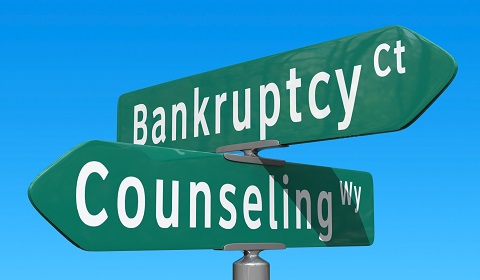In 2005, the United States Congress made significant amendments to the U.S. Bankruptcy Code with a new law called the Bankruptcy Abuse Prevention and Consumer Protection Act (BAPCPA). One of the many changes to the law was the addition of a credit counseling requirement for all persons filing bankruptcy, specifically Chapter 7 bankruptcy or Chapter 13 bankruptcy.
The credit counseling requirement is a two-part obligation. Debtors filing bankruptcy must attend one session prior to filing bankruptcy and a second session after filing bankruptcy. The counseling sessions must be with approved providers and proof of completion must be obtained and filed with the Bankruptcy Court.
Compliance with this provision of law is important. Without proof of the initial credit counseling session, filing bankruptcy is considered deficient and a bankruptcy case will not proceed. Without proof of the second session, a person will not receive their discharge order, which is the court’s legal cancellation of the debts — the obvious goal of filing bankruptcy.
Credit Counseling Sessions Before Filing Bankruptcy
Typically, the credit counseling sessions are not excessively demanding. Many sessions take an hour or less. Sessions can sometimes be done by telephone or online. Approved credit counseling providers are usually flexible in scheduling sessions and charge reasonable fees. For married persons, sessions can be completed together or separately, depending on your schedule.
Most clients of RGG Law obtain their credit counseling from a private non-profit organization known as Consumer Credit Counseling Services of the Ozarks (CCCS). CCCS is locally based in southwest Missouri, has a long history helping debtors well before the 2005 changes to the bankruptcy law and has a good reputation for compassionate and professional treatment of debtors. In some circumstances of extreme need, the counseling provider can even waive the charge of the counseling fee session.

